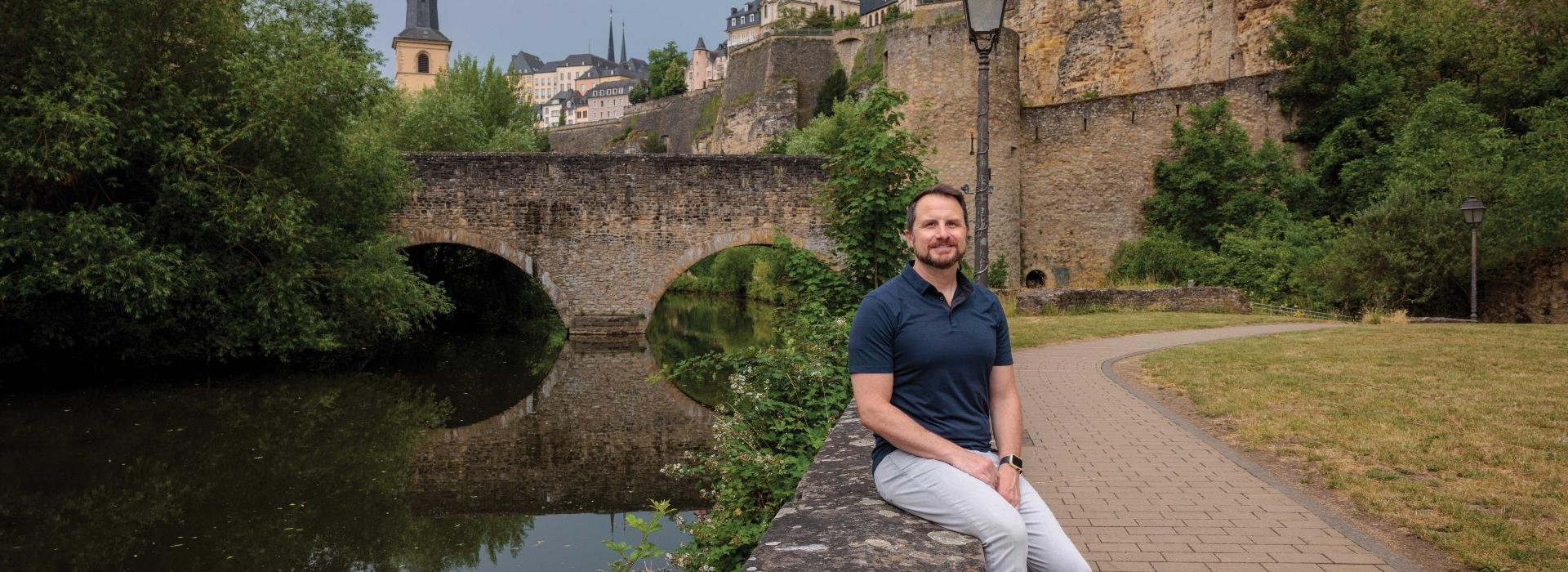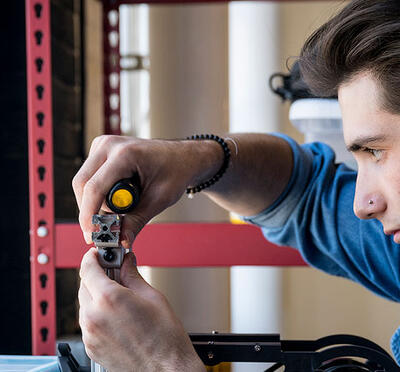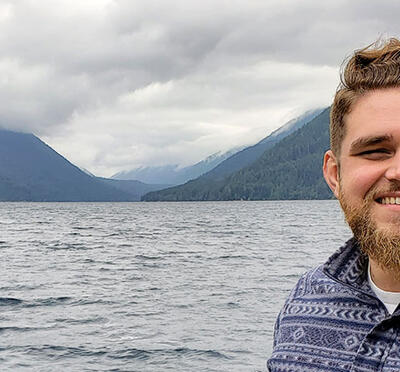Amazon’s senior manager of worldwide real estate engineering, Andy Balk, B.S. industrial and manufacturing engineering ’98, operates at the core of the company’s global effort to electrify its entire fleet of delivery vans.
Specifically, he’s responsible for ensuring that the European operational support network — which includes distribution hubs and fulfillment centers — is ready for the elemental shift in how the company transports goods. The changeover is a central component of Amazon’s pledge to reach net-zero carbon emissions by 2040.
“We develop engineering designs and templates that serve as the inspiration for all of the operational support buildings,” said Balk, who works out of Amazon’s European headquarters in Luxembourg. “We deal with the mechanical, electrical, plumbing, and fire suppression systems, among others.”
For most customers, the vans will be the only sign of electrification. Many people may not even notice, though they are the most conspicuous component of the company’s shipping and delivery services.
One big difference between electric vehicles and internal combustion vehicles is refueling. An electric van typically requires eight to 12 hours to charge, compared with a few minutes to fill a gasoline-powered vehicle. That major difference leads to a different approach for scheduling trips and planning refueling stops. Any company involved in delivering goods that decides to go electric will have to account for a new logistical balance to maintain its ability to quickly and reliably get products to customers.
It’s not the first time in his career that Balk has worked to increase sustainability and preserve scarce resources. While serving as Nike’s global environmental deployment director in Singapore, a position he held from 2015 to 2019, he aligned operations at more than 500 Nike and affiliate contract manufacturing facilities, enabling the company to hit promised sustainability targets. For example, Balk’s efforts reduced the total amount of water used in the manufacturing process by more than 1.3 billion gallons (enough to fill 2,000 Olympic-sized swimming pools). The achievement was also well ahead of schedule.
“Making impactful improvements in sustainability requires understanding and commitment from a large list of key stakeholders, and communicating technical solutions and strategies is important to drive results,” Balk said.
Balk is convinced that Oregon State University prepared him to face these challenges. He started off in the civil engineering program, where he first encountered the idea of structured problem-solving. “Those skills have served me every day of my career,” he said. “Just last weekend, I was sharing with my kids just how important it is in life.”
After two years, he switched to the industrial engineering and manufacturing program, where he began developing a new and complementary set of abilities.
“At school, and then in my career, I began to understand how to step into a complicated system, like manufacturing or logistics, and figure out how to make the process run more smoothly and eliminate waste,” Balk said.
It’s a mindset that stuck, and it’s perfectly suited to his position.
“When faced with so many variables in large-scale, complex projects, like fleet electrification, those skills are exceptionally helpful,” Balk said. “Most of the things I do today I initially learned during my time at Oregon State.”
He also credits internships through MECOP, the Multiple Engineering Cooperative Program, for giving him a leg up.
“I had nine months of professional experience before I earned my degree,” he said. “I got to see how the world worked and what engineers really did. That was something I could talk about in job interviews.”
The project presentations he did during those internships helped him boost communication skills that came into play early in his career, opening doors to life-changing opportunities.
“I’ve lived and worked as an engineer with several companies in four countries and dealt with very interesting problems. I could never have imagined being so fortunate, and there’s a direct line from my time at the university that runs through my career.”
Balk wants to give back to Oregon State Engineering, perhaps supporting students in an advisory role — though that might have to wait until demands on his time have ratcheted down a bit. He also would like to help change perceptions about engineering itself.
“There’s often this attitude that it’s boring or it’s too hard,” he said. “Sure, it can be challenging, but engineering can lead to really cool and interesting jobs and lives, and it offers real opportunities to contribute to the world in so many ways. The world is a better place with more engineers.”



